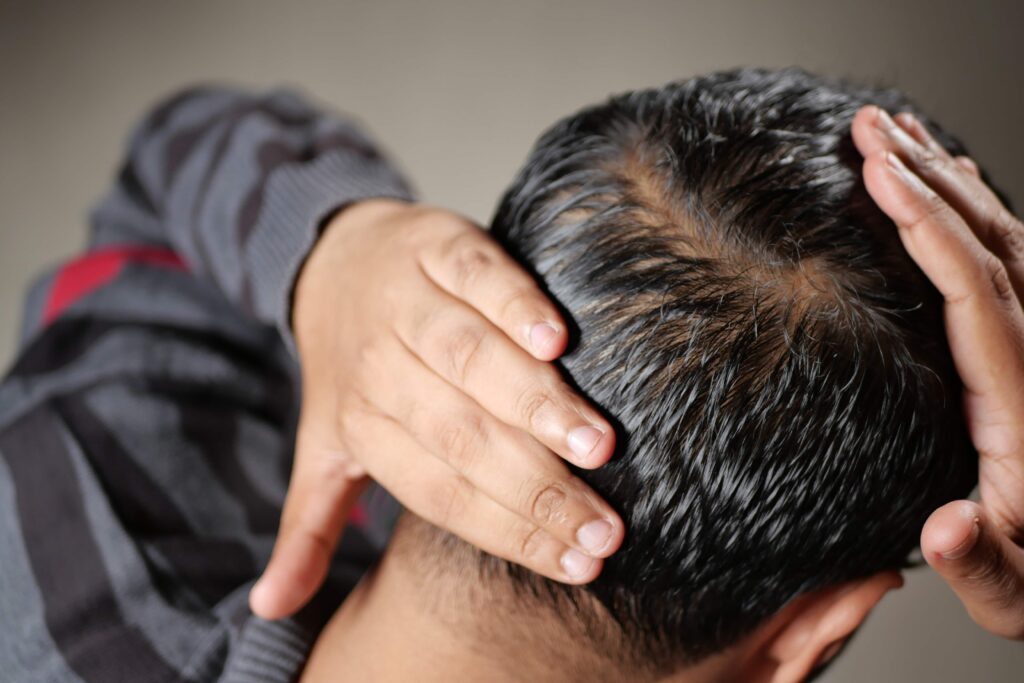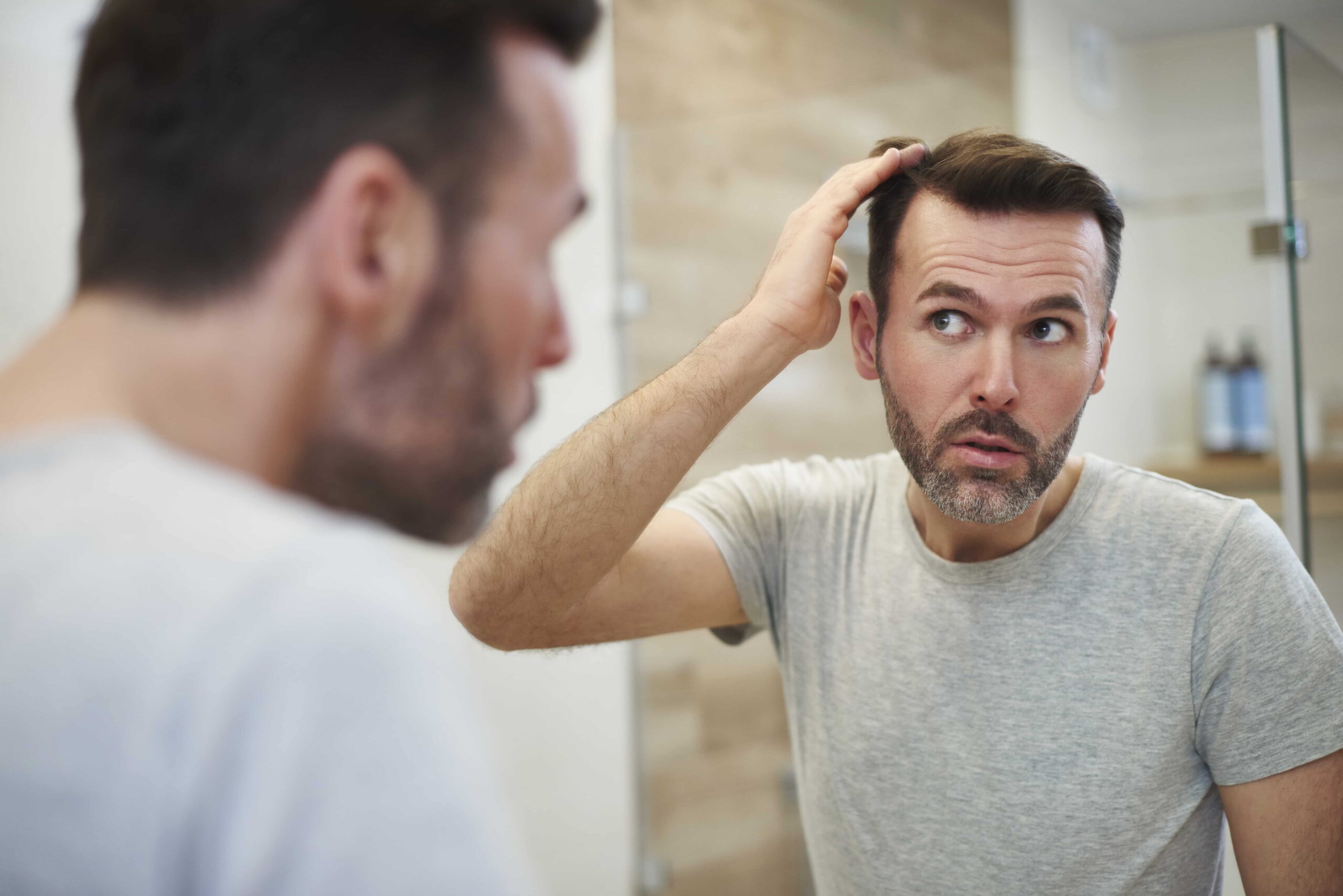Hair loss, medically known as alopecia, is a common concern affecting millions worldwide. While it is often considered a natural part of the aging process, it can lead to reduced self-esteem, psychological distress, and a search for practical solutions.
One of the most common questions individuals with hair loss ask is whether it is possible to reverse the process and regain their lost hair.
Let’s delve into hair loss reversal, focusing on male pattern baldness and alopecia. We will explore the underlying causes of hair loss, discuss potential reversal strategies, and provide insights into the latest advancements in the field.
Understanding Hair Loss: Causes & Types
Before diving into the possibility of reversing hair loss, it’s essential to understand the causes and types of hair loss. Hair loss can be attributed to various factors, including genetics, hormonal changes, medical conditions, medications, and lifestyle choices.
The most common types of hair loss include male pattern baldness (androgenetic alopecia) and alopecia areata.

Male Pattern Baldness: Can It Be Reversed?
Male pattern baldness is the most common cause of hair loss in men. It is characterized by a receding hairline and thinning of the crown, eventually leading to complete baldness in some cases. This type of hair loss is primarily influenced by genetics and hormonal factors, specifically dihydrotestosterone (DHT), a derivative of testosterone. DHT is known to shrink hair follicles, leading to shorter and finer hair growth until the follicles cease to produce visible hair.
Reversal Strategies for Male Pattern Baldness
While a complete reversal of male pattern baldness may be challenging, there are various strategies that individuals can consider to slow down the progression of hair loss and stimulate hair regrowth.
Medications: Two FDA-approved medications, minoxidil (topical) and finasteride (oral), have shown promise in treating male pattern baldness. Minoxidil increases blood flow to the hair follicles, promoting hair growth, while finasteride inhibits the conversion of testosterone into DHT, reducing its harmful effects on hair follicles.
Low-level laser therapy (LLLT): LLLT involves using red light to stimulate hair follicles and promote regrowth. While its exact mechanism of action is not fully understood, some studies suggest that LLLT may improve cellular activity within the follicles.
Hair transplantation: Hair transplantation involves moving hair follicles from areas with adequate hair growth to areas with thinning or no hair. This surgical procedure can provide significant cosmetic improvements, but its success depends on factors such as donor hair availability and the surgeon’s skill.
Platelet-rich plasma (PRP) therapy involves injecting a concentrated solution of platelets derived from the patient’s blood into the scalp. Platelets contain growth factors that may promote hair follicle health and stimulate hair regrowth.
Lifestyle changes: Adopting a healthy lifestyle can also positively impact hair health. Eating a balanced diet rich in vitamins and minerals, managing stress, and avoiding harmful hair practices can contribute to healthier hair follicles.
Alopecia Areata: Can It Be Reversed?
Alopecia areata is an autoimmune disorder resulting in sudden hair loss, often in circular patches on the scalp or other body parts. The immune system mistakenly attacks the hair follicles, leading to hair loss. While alopecia areata can sometimes resolve independently, individuals experiencing persistent hair loss may explore various treatment options.
Reversal Strategies for Alopecia Areata
Corticosteroids: Topical or injected corticosteroids can help suppress the immune response and reduce inflammation around the hair follicles. This may allow the follicles to recover and promote hair regrowth.
Immunotherapy: Immunotherapy involves applying chemicals like diphencyprone (DPCP) to the scalp, which induces an allergic reaction. This reaction redirects the immune response away from the hair follicles, potentially allowing hair to regrow.
JAK inhibitors: Janus kinase (JAK) inhibitors are a newer class of drugs that target the immune response involved in alopecia areata. These medications have shown promising results in clinical trials, with some experiencing significant hair regrowth.
Hair camouflage: In cases where regrowth is not immediate, individuals can use techniques like scalp micropigmentation or hairpieces to create the appearance of fuller hair.
The Future of Hair Loss Reversal
Medical research and technology advancements have opened up exciting possibilities for hair loss reversal.
Researchers are exploring innovative approaches, such as stem cell therapy, gene therapy, and tissue engineering, to rejuvenate hair follicles and stimulate regrowth. These approaches can provide more comprehensive and long-lasting results than existing treatments.
So, Can Hair Loss Be Reversed?
Whether hair loss can be reversed depends on various factors, including the type of hair loss, the individual’s genetics, and the chosen treatment approach.
While a complete reversal of hair loss may not always be achievable, significant advancements have been made in hair restoration. Individuals experiencing hair loss, whether due to male pattern baldness or alopecia areata, have a range of options available to slow down the progression of hair loss and promote regrowth.
Consulting with a qualified medical professional is essential to determine the most suitable treatment plan based on individual needs and preferences. For more information, visit the Evolve Telemedicine website or call (800) 407-4117 to schedule a consultation.







